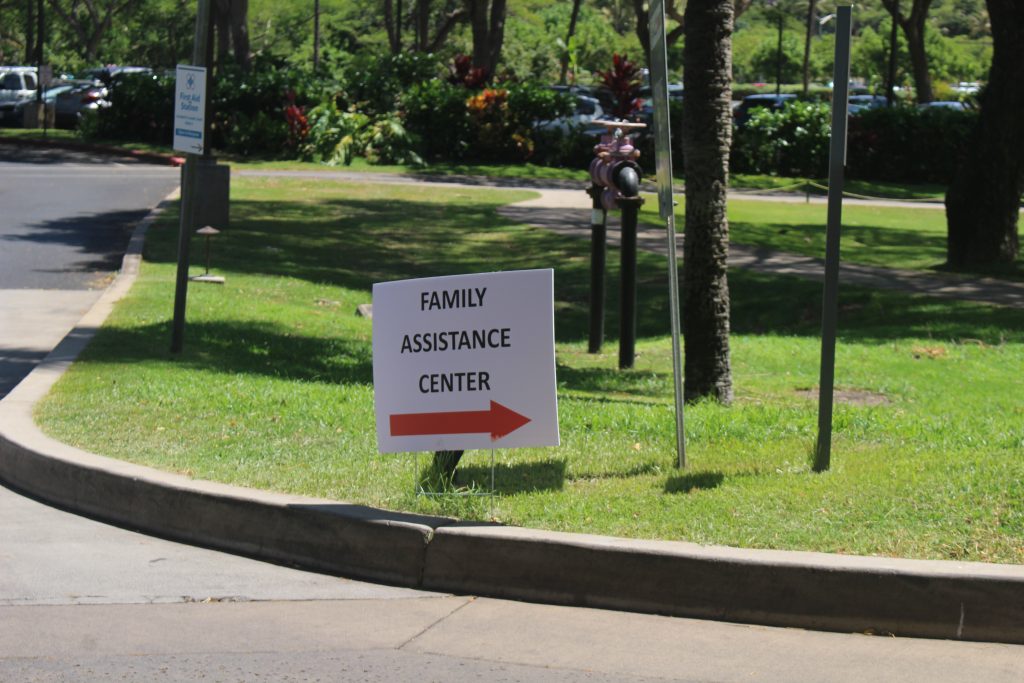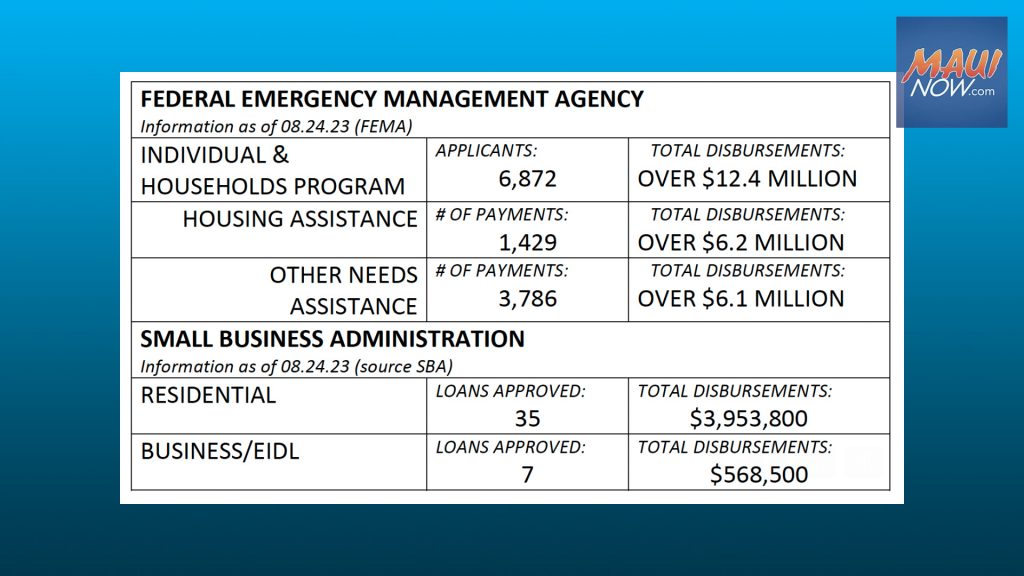Maui wildfire survivors transition to hotels, timeshares and Airbnb units

Governor Josh Green, M.D., has announced a critical milestone in the Lahaina wildfire response, with Tuesday’s closing of the last American Red Cross congregate shelter that was temporarily housing the survivors of the deadly wildfires on Maui.
On Tuesday, Aug. 22, the last of the sheltered wildfire survivors staying at the South Maui Community Park Gymnasium in Kīhei, regained privacy as they were transitioned to longer-term housing.
Since Aug. 16, the American Red Cross, Hawaiʻi Emergency Management Agency and the Federal Emergency Management Agency relocated nearly 3,000 survivors of the Maui wildfires from congregate shelters to contracted hotels.
In total, more than a dozen hotels and timeshare properties are currently housing more than 4,400 shelter survivors and hotel employee survivors, while some 900 people are booked in Airbnb units. These accommodations will continue to provide meals, casework services, financial recovery resources and other disaster relief assistance.

“We want to thank our partners at the American Red Cross, FEMA, the hotel industry and Airbnb, for stepping up during this unprecedented tragedy,” said Gov. Green. “Only together can we rise up, recover and bring healing to the Lahaina community.”
“I would also like to express my gratitude to the West Maui properties who are housing hundreds of their team members and their families. These hotels and timeshares have generously opened up their properties without hesitation. I especially want to thank the Royal Lahaina Resort for being the first hotel to step up to the plate and offer housing for those displaced from the wildfires,” said Gov. Green.
Expedient work was key in this success, said American Red Cross Director of Disaster Relief Operations for the Hawai‘i Wildfires, Dave Gutierrez. “The ability to get people into a comfortable, safe, and sanitary lodging solution this quickly was only possible because of the collaboration and unified efforts of our partners. Responding to disaster is a team effort. No single agency can do it alone and we are honored to be part of the whole community response to support the people of Maui through this tragedy,” he said.
“This team effort to help Maui’s kamaʻāina get out of group shelters and into stable and more private housing was executed with tremendous speed,” said Administrator James Barros of the Hawai‘i Emergency Management Agency. “We hope restoring some stability will help the community heal.”
This temporary solution will help residents who cannot return to their homes while long-term housing plans are developed in collaboration with Maui County and its people.
The state, American Red Cross and FEMA selected hotels and Airbnb units in West Maui to preserve continuity in the survivors’ lives and to keep them close to their community.
The American Red Cross is operating the housing under a contract with the State of Hawaiʻi, funded through FEMA’s non-congregate sheltering program. The contract also covers wrap-around services for survivors of the disaster.
“Because of the tremendous partnership between FEMA, Hawai‘i, and our nonprofit partners, thousands of residents have transitioned out of shelters and into hotels,” said FEMA Administrator Deanne Criswell. “As the community heals, FEMA will continue to partner with Gov. Green, Mayor Bissen, and each survivor to help them recover.”
“The first 30 days of a disaster can be especially difficult for survivors as they navigate their insurance coverage and eligibility for various programs,” said Federal Disaster Response Coordinator Bob Fenton. “As the residents of Maui take their first steps towards recovery, FEMA ensures displaced survivors have access to comfortable and private accommodations, regardless of their eligibility for FEMA assistance.”
FEMA will conduct eligibility reviews by mid-September, after which survivors who have registered for FEMA assistance and whose homes are deemed uninhabitable, may remain in a hotel until they find their own housing solution or do so with the help of a dedicated caseworker.
The Red Cross and FEMA will continue to offer – and in some instances upgrade – mental health support, financial recovery and other wrap-around services for the people affected by the deadly fire.

“For our residents of Lahaina, Kula and other fire-ravaged areas of Maui, recovery is going to take a great deal of time and patience,” said Gov. Green. “We are so very grateful for the support of President Biden and many other federal agencies who have stepped in to help them, just as we have seen the entire Hawaiʻi community send food, supplies and other tangible reflections of their aloha to help their ʻohana on the Valley isle,” he said. “We ask for a focus on continued monetary donations to trusted, legitimate nonprofit organizations who are presently serving our Maui residents.”
Residents of Lahaina or other impacted areas on Maui who have lost their homes because of the wildfires should call 1-800-REDCROSS for more information on accommodations and financial assistance available.






_1768613517521.webp)

